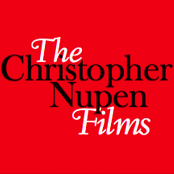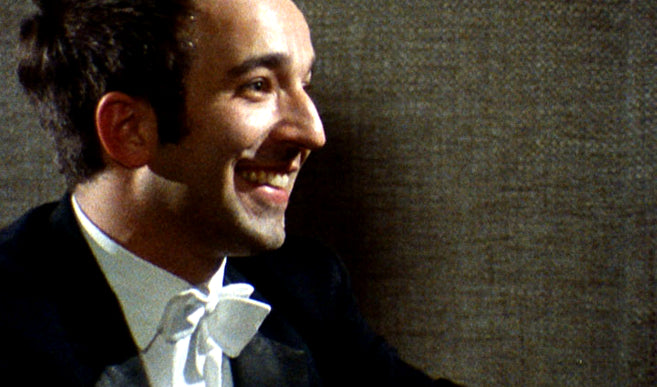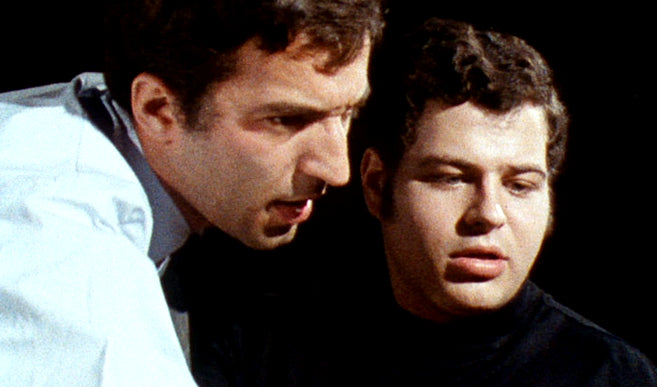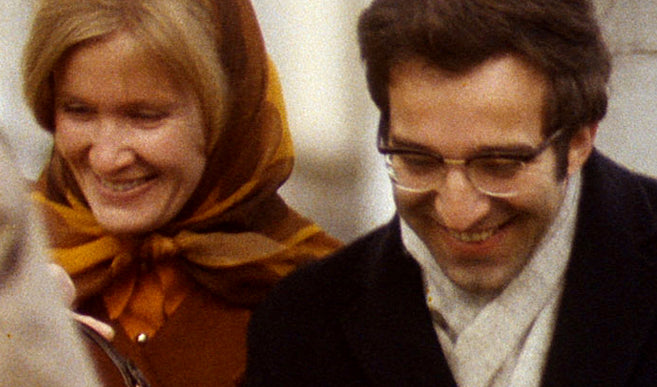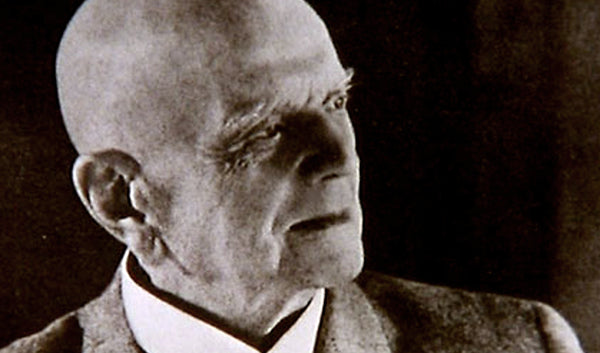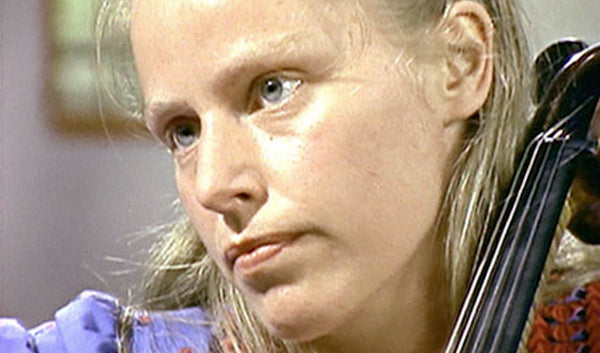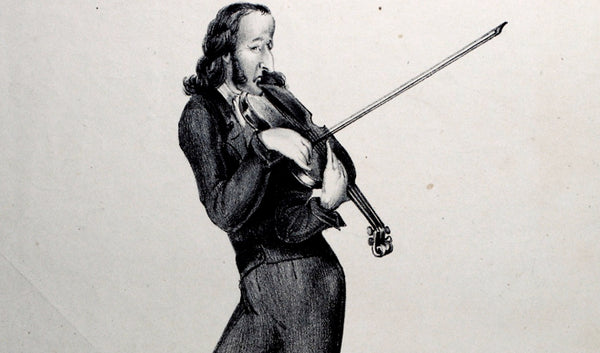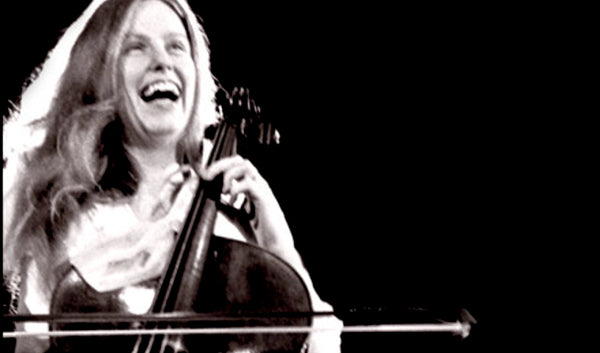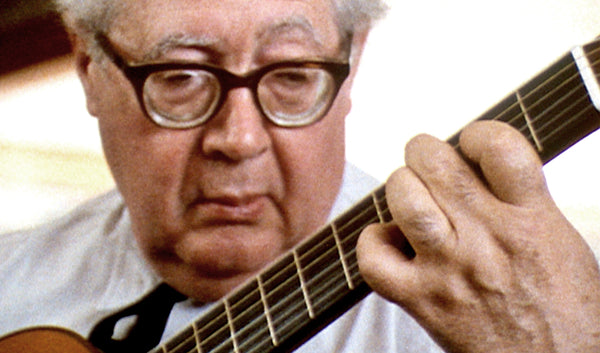This DVD contains the portrait film Vladimir Ashkenazy: The Vital Juices Are Russian and a performance film in which Vladimir Ashkenazy introduces and plays Rachmaninov's Corelli Variations. There is also a montage of sequences from our films with Vladimir Ashkenazy as conductor.
A retiring man who comes vividly to life when at the keyboard. His personality spills out of the film.
The Daily Telegraph
VLADIMIR ASHKENAZY: THE VITAL JUICES ARE RUSSIAN
On the 8th of June 1968 Vladimir Ashkenazy, with his Icelandic wife Thorunn and their two children, arrived at their new home in Reykjavik in Iceland. It was a crucial moment in their lives. They had left the Soviet Union, with the help of Nikita Kruschev, in 1963 and for five years had lived in London.
Coming to terms with living in the West and with the pressures of a high level international concert career had proved difficult however and they felt that they needed more space and more time, both for their private and for their professional lives.
In his teens Ashkenazy had won several major prizes including the Chopin International Prize in Brussels in 1956 and the Tchaikovsky Competition in Moscow in 1962. He nevertheless felt that he had been inadequately prepared by the Russian educational system. He felt strongly that while he was totally at home with Russian music he was not close enough to the great traditions of the West.
As subsequent events have proved, those anxieties say more about his earnestness than about his abilities, but the worries were real enough at the time. It seemed to us an ideal moment to make a film about this Russian-born master pianist, with his very particular personal appeal, adapting to life and music in the Western world. And so we went with him to Iceland to film him and his family during their first days there.
The title comes from a statement which he makes in the film. After moving to the West, Ashkenazy's career had taken off at an almost alarming rate. It had been boosted, dramatically, by the international success of our film Double Concerto in which he and Daniel Barenboim had appeared together for the first time. That film, after winning both the Prague and Monte Carlo prizes, was shown in 18 countries within 12 months of its first broadcast and attracted, for both artists, an international public that might otherwise have taken them 20 years or more to build.
The success, however, further increased the pressures. Films of this kind depend heavily on being in the right place at the right time and we felt that we had begun at an auspicious moment. So we followed our couple from Iceland on a tour of Europe, to continue observing them at a time when they were deeply engaged in a process of dramatic change and reflecting daily on their situation and their problems.
The film includes sequences with Itzhak Perlman, Daniel Barenboim, Edo de Waart and the Rotterdam Philharmonic Orchestra. There is is music by Beethoven, Chopin, César Franck and Stravinsky.
It is also a closely observed account of one of the most demanding and rewarding of all professions and was described by Ingmar Bergman on Swedish television in 1972 as the best he had seen about a living musician.
VARIATIONS ON A THEME OF CORELLI
by SERGEI RACHMANINOFF
introduced and played by Vladimir Ashkenazy
Vladimir Ashkenazy has had a particular affection for the music of Rachmaninoff throughout his professional life and his performances have long had the ring both of authenticity and of deep commitment.
This is not surprising in a Russian-born and Russian-trained musician of Ashkenazy’s stature, but it is worth remembering that for many years after his emigration from the Soviet Union his interest in Russian music was somewhat eclipsed by his concern to master the music of the Western European traditions.
By common consent Ashkenazy is now at a new peak in his career and is recognized as one of the leading pianists of our time, as much at home in the music of the West as of his native Russia. So the time seemed right for a television programme in which he would both introduce and perform one of Rachmaninoff’s greatest works for the piano: the Variations on a Theme of Corelli and one that is particularly revealing about the composer.
Rachmaninoff wrote the piece in 1931. At the time he was widely regarded as the leading pianist of his day and one of the most gifted composers for the instrument, and yet, largely as a consequence of his exile and his increasing melancholy, he had published nothing for the piano in sixteen years. It was to be his last work for the instrument which he had played with such mastery from childhood and which had sustained him in exile through long periods of silence as a composer; not surprisingly it is one of his finest and one of his most intimately revealing compositions.
In an introduction which lasts about 25 minutes, Ashkenazy introduces the piece with examples at the keyboard and with many revealing touches about his own attitude to Rachmaninoff and to this music. The film ends with a complete performance of the variations recorded at a public concert which Ashkenazy gave in Lugano, Switzerland. There are few, if any, pianists on the concert platform today who are able to surpass his mastery of this music.
The DVD also contains a montage of sequences from our composer film which have always featured Vladimir Ashkenazy as conductor. There one sees a very different Ashkenazy from the rather retiring pianist who focusses so intensely on his instrument and the images tell us much both about the musician and about the man.
This DVD contains the portrait film Vladimir Ashkenazy: The Vital Juices Are Russian and a performance film in which Vladimir Ashkenazy introduces and plays Rachmaninov's Corelli Variations. There is also a montage of sequences from our films with Vladimir Ashkenazy as conductor.
A retiring man who comes vividly to life when at the keyboard. His personality spills out of the film.
The Daily Telegraph
VLADIMIR ASHKENAZY: THE VITAL JUICES ARE RUSSIAN
On the 8th of June 1968 Vladimir Ashkenazy, with his Icelandic wife Thorunn and their two children, arrived at their new home in Reykjavik in Iceland. It was a crucial moment in their lives. They had left the Soviet Union, with the help of Nikita Kruschev, in 1963 and for five years had lived in London.
Coming to terms with living in the West and with the pressures of a high level international concert career had proved difficult however and they felt that they needed more space and more time, both for their private and for their professional lives.
In his teens Ashkenazy had won several major prizes including the Chopin International Prize in Brussels in 1956 and the Tchaikovsky Competition in Moscow in 1962. He nevertheless felt that he had been inadequately prepared by the Russian educational system. He felt strongly that while he was totally at home with Russian music he was not close enough to the great traditions of the West.
As subsequent events have proved, those anxieties say more about his earnestness than about his abilities, but the worries were real enough at the time. It seemed to us an ideal moment to make a film about this Russian-born master pianist, with his very particular personal appeal, adapting to life and music in the Western world. And so we went with him to Iceland to film him and his family during their first days there.
The title comes from a statement which he makes in the film. After moving to the West, Ashkenazy's career had taken off at an almost alarming rate. It had been boosted, dramatically, by the international success of our film Double Concerto in which he and Daniel Barenboim had appeared together for the first time. That film, after winning both the Prague and Monte Carlo prizes, was shown in 18 countries within 12 months of its first broadcast and attracted, for both artists, an international public that might otherwise have taken them 20 years or more to build.
The success, however, further increased the pressures. Films of this kind depend heavily on being in the right place at the right time and we felt that we had begun at an auspicious moment. So we followed our couple from Iceland on a tour of Europe, to continue observing them at a time when they were deeply engaged in a process of dramatic change and reflecting daily on their situation and their problems.
The film includes sequences with Itzhak Perlman, Daniel Barenboim, Edo de Waart and the Rotterdam Philharmonic Orchestra. There is is music by Beethoven, Chopin, César Franck and Stravinsky.
It is also a closely observed account of one of the most demanding and rewarding of all professions and was described by Ingmar Bergman on Swedish television in 1972 as the best he had seen about a living musician.
VARIATIONS ON A THEME OF CORELLI
by SERGEI RACHMANINOFF
introduced and played by Vladimir Ashkenazy
Vladimir Ashkenazy has had a particular affection for the music of Rachmaninoff throughout his professional life and his performances have long had the ring both of authenticity and of deep commitment.
This is not surprising in a Russian-born and Russian-trained musician of Ashkenazy’s stature, but it is worth remembering that for many years after his emigration from the Soviet Union his interest in Russian music was somewhat eclipsed by his concern to master the music of the Western European traditions.
By common consent Ashkenazy is now at a new peak in his career and is recognized as one of the leading pianists of our time, as much at home in the music of the West as of his native Russia. So the time seemed right for a television programme in which he would both introduce and perform one of Rachmaninoff’s greatest works for the piano: the Variations on a Theme of Corelli and one that is particularly revealing about the composer.
Rachmaninoff wrote the piece in 1931. At the time he was widely regarded as the leading pianist of his day and one of the most gifted composers for the instrument, and yet, largely as a consequence of his exile and his increasing melancholy, he had published nothing for the piano in sixteen years. It was to be his last work for the instrument which he had played with such mastery from childhood and which had sustained him in exile through long periods of silence as a composer; not surprisingly it is one of his finest and one of his most intimately revealing compositions.
In an introduction which lasts about 25 minutes, Ashkenazy introduces the piece with examples at the keyboard and with many revealing touches about his own attitude to Rachmaninoff and to this music. The film ends with a complete performance of the variations recorded at a public concert which Ashkenazy gave in Lugano, Switzerland. There are few, if any, pianists on the concert platform today who are able to surpass his mastery of this music.
The DVD also contains a montage of sequences from our composer film which have always featured Vladimir Ashkenazy as conductor. There one sees a very different Ashkenazy from the rather retiring pianist who focusses so intensely on his instrument and the images tell us much both about the musician and about the man.
